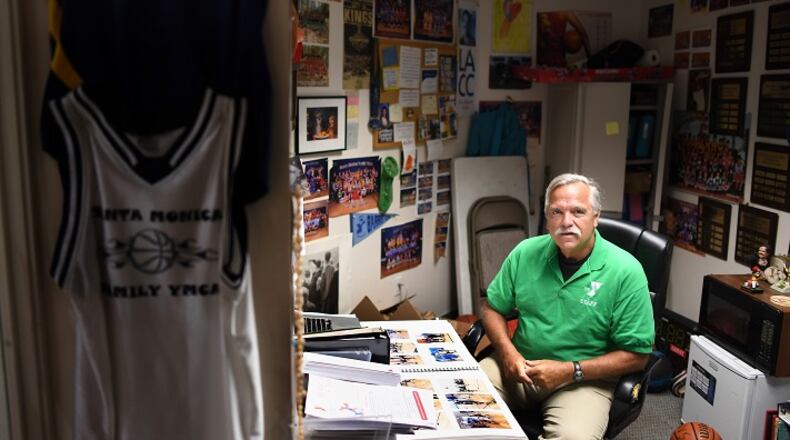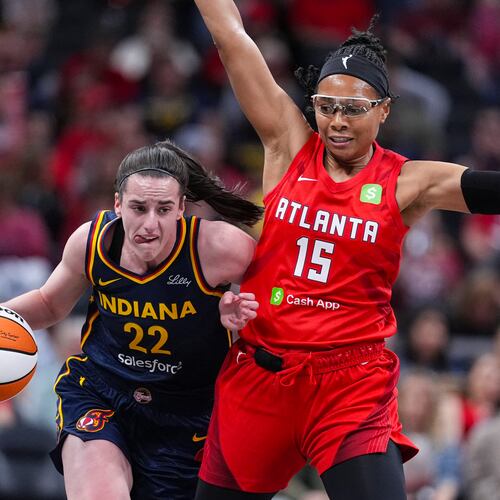Marcia Kislinger was dying, taking her last breaths, but her family wasn't there yet. They had just been notified.
They were rushing from their homes to her bedside at Providence St. John's Health Center in Santa Monica. They were worried they wouldn't arrive in time, and the 63-year-old woman would die alone.
As they raced into her room, they suddenly stopped, struck with the oddest of sights. She had company.
Sitting at her bedside was a stranger with a walrus mustache and the touch of a feather. He was stroking her hand and whispering into her ear. She was not responding. He continued speaking.
"It's OK. ... I'm right here. ... You're not alone."
The family stared at each other in wonder.
"We were all like, 'Who is this man?'" recalled Eddie Kislinger, Marcia's brother. "He was a total stranger, yet he was so calm, so kind, there was something angelic about him."
When the man stood up, he addressed the family in oddly familiar baritone tones. He was wearing a one-word name tag:
"Peter."
Later, outside the room, Kislinger asked Peter if he knew his sister. He did not. He asked Peter if talking to dying patients was his vocation. He replied that, no, it was not.
Actually, Peter said, he has this other job where he talks to hundreds of thousands of Angelenos under far different circumstances.
"That's when it hit me," Kislinger said. "I realized that the voice comforting my sister in her final hours was the voice of USC football."
Peter was, indeed, Pete Arbogast, the longtime Trojans football radio announcer who answers to a higher play-calling. His most important listeners never know his name. His most important words are often the last they hear.
Arbogast, 63, is a volunteer in the Providence St. John's No One Dies Alone program, a nationwide service that offers companionship to dying patients.
If a terminally ill patient's family is not immediately available, or if they have no family, Arbogast is one of about 50 volunteers who might be summoned to their bedside. He spends as many as four hours comforting them.
He sits at their shoulders, believing they can still hear. He lightly strokes their arms or pats their backs, hoping they can still feel. He has a voice that has famously boomed throughout Southern California for 23 years of Saturdays, yet he lowers it to a calming hush.
"It's like I'm just a guide from one place to the next," Arbogast said. "I'm just there to help you out, to make sure you're OK on your journey."
Sometimes he talks about the day. Sometimes he talks about sports. He has never once talked about USC football. Because volunteers are known only by their first names, few in the hospital know he is associated with USC football.
Often, Arbogast reads words of inspiration culled from books he collects for these occasions, from the works of writers such as Henry Van Dyke and Howard A. Walter.
"Things a man must learn to do, if he would make his record true ... to love his fellow men sincerely, to act from honest motives purely.
"I would be true, for there are those who trust me; I would be pure, for there are those who care ... "
During his 10 visits in the last several years, no patient has died while Arbogast was in the room. Some have died shortly after he left. He sometimes walks away feeling depleted, as if he had just left the Coliseum after calling a USC game against Notre Dame.
"Sometimes I feel like I've just finished a broadcast, I'm so emotionally exhausted," Arbogast said. "But it's not about me. It's not for me. The fact is, no one should die alone. That would be horrible. This is for them. Even if they don't know we're there, we're there."
That has been a mantra for Arbogast's life, one that could be in the brightest spotlight but does its best work in the shadows.
Arbogast has been the radio announcer for more USC football games than anybody, passing the great Tom Kelly after Kelly began splitting his time between television and radio.
"He's become an iconic figure in USC sports history," said John Jackson, his partner in the booth.
About the Author
Keep Reading
The Latest
Featured


